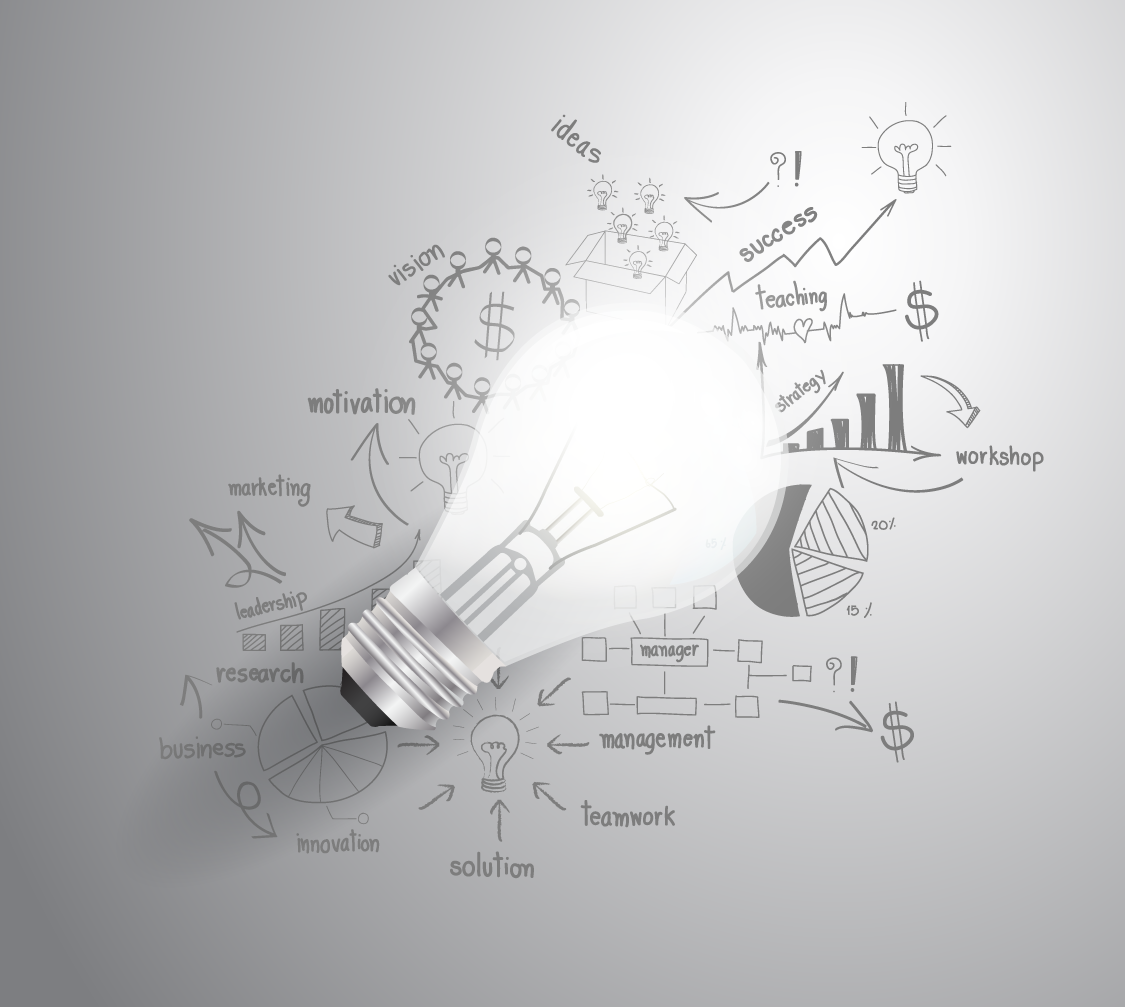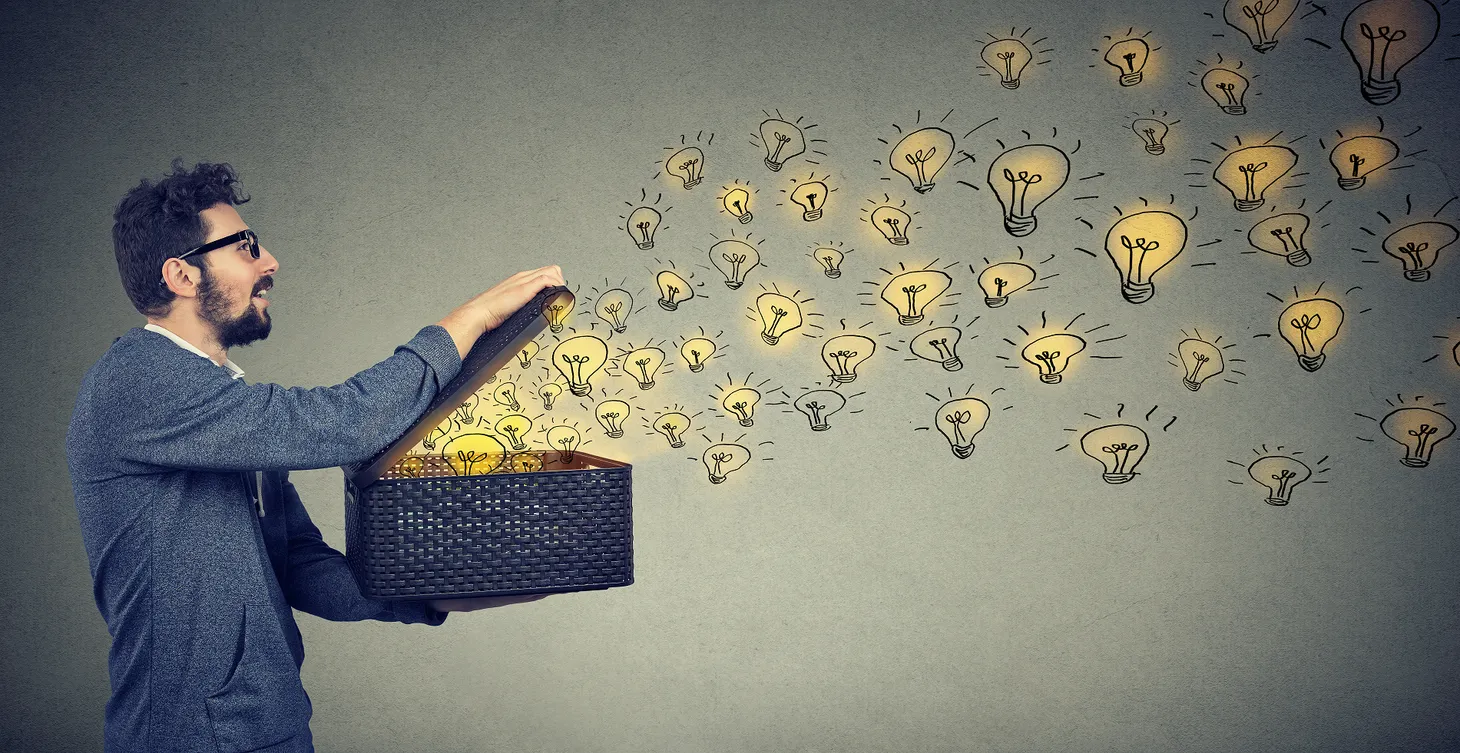Understanding the Innovation Economy and Its Impact on Our World
The innovation economy definition is an economic element based on the production, distribution, and consumption of ideas, information, and knowledge. We’re seeing the rise of the innovation economy, and those who cling to old ways of doing business are getting left behind.

As an influential business thinker and leader in innovative management strategy, Gary Hamel understands what it takes for modern businesses to succeed. It is no longer enough for a business to lean on its strengths, making incremental improvements to maintain an edge over the competition. In order to be a genuine leader in any industry, a business must focus on creating killer innovations to win in the emerging innovation economy.
We've reached the end of incrementalism. Only those companies that are capable of creating industry revolutions will prosper in the new economy.
Gary Hamel
This is the foundation of the “new economy” Hamel referred to. Today, we’re seeing the rise of the innovation economy, and those who cling to old ways of doing business are getting left behind.
What Is The Innovation Economy?
To fully understand what the innovation economy is, it is important to first know how it came about. The theory of innovation economics was developed in the last few decades. Previously, the growth of the economy was determined by the market’s response to price signals on the supply and demand curves and the efficient allocation of resources. And this made sense as the economy emerged from the Second Industrial Revolution. However, as the pace of technological development increased—specifically with digital technology—everything changed.
Innovation Economy Definition
While in older economic models, innovation is an independent force. In the innovation economy, they view innovation as a central tenet that should be encouraged by government policies and bolstered by knowledge, technology, and entrepreneurship. Spurring these factors should be the primary goal of economic policy and developing effective private-public partnerships that spark increased innovation and productivity.
The innovation economy definition is an element of the economy based on the production, distribution, and consumption of ideas, information, and knowledge. A market-based system that uses research and development to create new products or services. Innovation in the economy can take many forms, such as new technologies, business models and processes, or organizational structures. The innovation economy is an interconnected system wherein companies are continuously learning and developing new ways to use technology for commercial gain. Entrepreneurship is a key component of the innovation economy as it encourages individuals to take risks by investing their resources into developing innovative ideas.
The U.S. economy of the last few decades can illustrate the innovation economy. While we needed capital to move the economy forward, it wasn't the driver. It wasn't used to build more mills, plants, or factories. It was used to invest in research and development, better products and services, and introduce new ones. The most thriving cities in America were not the manufacturing hubs like Detroit. If anything, those cities suffered. The success stories came from cities encouraging innovation, like Silicon Valley, Boulder, and Portland.
How Is The Innovation Economy Changing Our World?
The innovation economy is shifting the focus of societies around the world. Instead of economies focused on developing and distributing valuable commodities from scarce resources, society's new goal is to leverage the economic definition of innovation to increase the quality of life for all and expand wealth by developing new business models, products and services, and forms of production.
Innovation started in the tech industry and quickly snowballed into other sectors of the economy. With improved technological capabilities, more universally accessible knowledge bases, and a globalized world, individuals and firms could more effectively create products and services that improved people's lives.
Individuals can buy groceries online and deliver them to their doorstep in a few hours. Consumers can print a replacement part at home for their dishwasher. Users can find a date for the night, who may end up being the love of their life, with a simple swipe of their thumb. But it's not just about consumers and their products and services.
The innovation economy is affecting professions and the skills needed to pursue them. More accurate and precise machines in the medical field allow doctors to diagnose with more efficacy. In the legal field, online platforms are allowing attorneys to specialize in niche areas. Gamification is helping teachers to engage with their students.
The common thread in many of these innovations in STEM. Science, technology, engineering, and math are in high demand. In order to bring great ideas to life, they need to be developed, researched, tested, produced and disseminated to the public. This entire process requires strong STEM skills.
For this very reason, the government is pushing STEM educational opportunities. They awarded more scholarships. Commercials and advertisements were produced. They gave school funding to science and math programs. The government is pursuing an innovation economy.
To this end, the White House has released a Strategy for American Innovation. They want to invest in research and development, create better policies and regulations to encourage innovation, focus on strategic areas like smart cities and educational technology, and increase the innovation capacity of the government itself.
But it's not just about STEM, or even about learning new skills and acquiring more education. This helps, of course. However, creating an innovative economy requires thinking outside of the box and continually challenging and solving. Businesses are beginning to see that, if they want to compete, they need to be more flexible, encourage greater creativity and ingenuity, and quickly adapt to market demands. The innovation economy has forced businesses to be in a constant state of growth. There is always something new to learn or a way to improve.
Why Is The Innovation Economy Important?
The innovation economy definition stands to make huge and far-reaching waves in our world. The innovations that have emerged over the last few decades alone have altered how we live our lives, how we do business, how we consume, how we connect with others, and what we value. This type of economy has made our day-to-day lives easier and more convenient and created faster and better ways to do just about everything. This means people have more time to do what they want and more money to save or spend on luxury items or services. We can live better lives.
We see proof of this in recent reports. Massachusetts, one of the leading states in innovation, measured the innovation economy's impact on their state.
Massachusetts has the highest percentage of bachelors-degree-holding adults. They also have impressively high job growth rates, both in their more innovative sectors and those in other sectors. Finally, for economic output, their innovation economy could reach nearly $210 billion—making them a leader in economic output.
The opportunities that have been cropping up because of a commitment to innovation can be seen in the influx of foreign migrants to the city. People want to live in places where jobs are available, people are educated, and exciting opportunities are constantly popping up.
The innovation economy is here to stay. Any person or entity can learn to be innovative and compete in this new economy! Do you have what it takes to keep up? To learn more about benefiting from the innovation economy, visit the innovation agency, Techtrend Group.
Phil McKinney Newsletter
Join the newsletter to receive the latest updates in your inbox.




